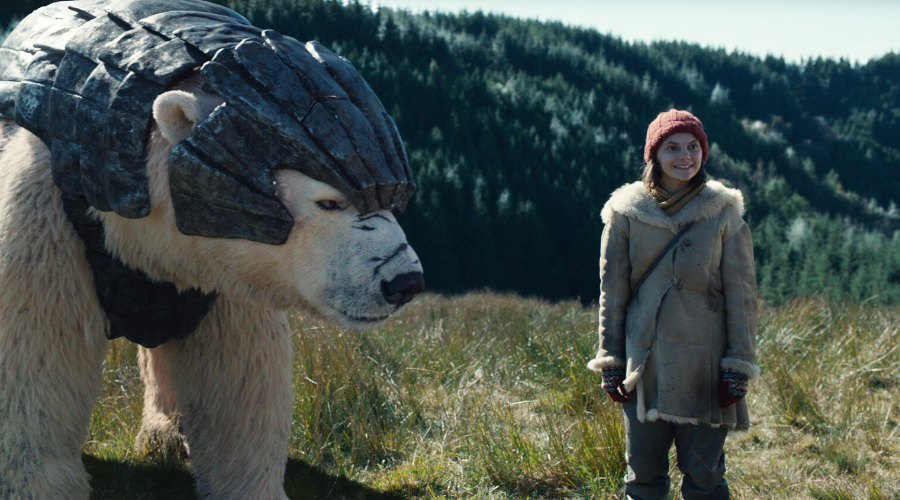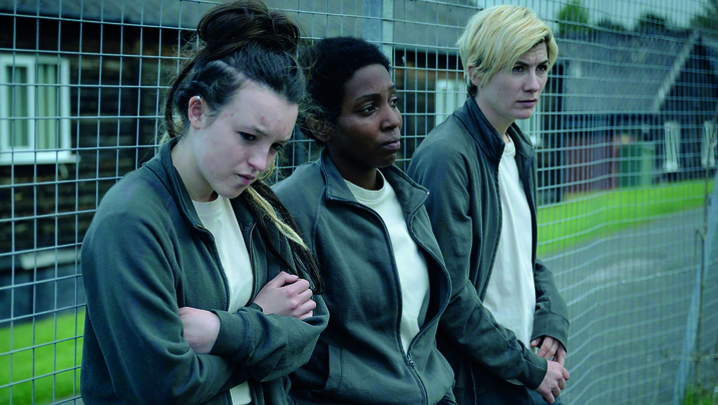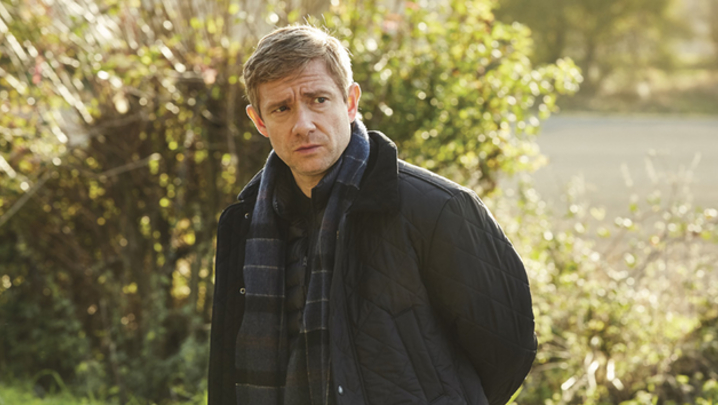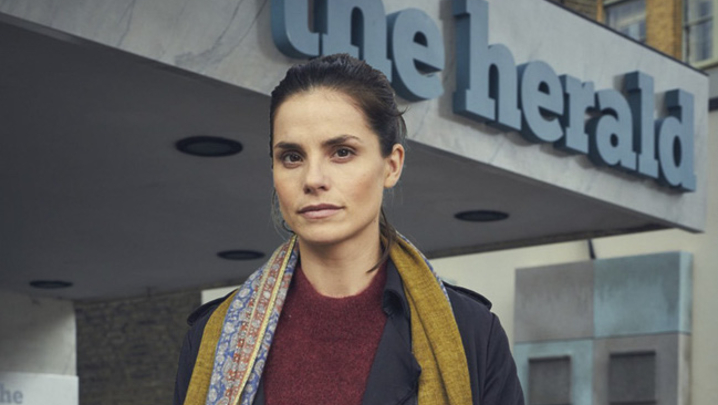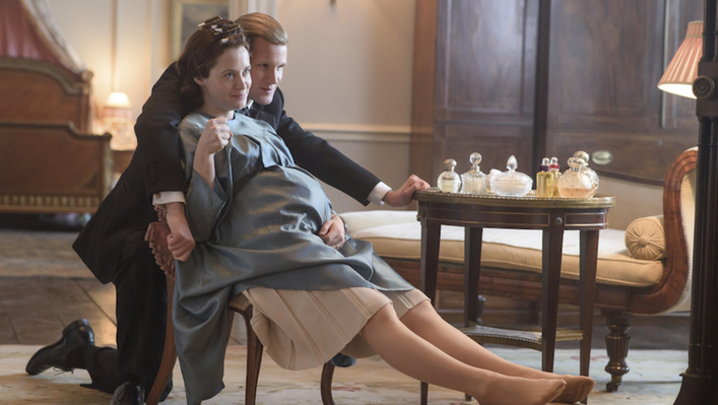Jack Thorne, writer of The Accident and adaptor of His Dark Materials, is one of the UK’s most sought-after screenwriters. He talks to Ben Dowell
‘Rachel doesn’t let me cycle,” laughs writer Jack Thorne as I am leaving his north London home following our interview. Rachel is his wife, a comedy agent and keen cyclist herself, who laughs back: “Yes, he’d just be cycling along and have a script idea and that would be that.”
They obviously know there’s nothing funny about cycling accidents, but the point is that Thorne is a man so teeming with ideas he should probably not don the Lycra. Ever. A self-confessed “obsessive”, he says he needs to have two projects on the go at any one time to help contain his fertile imagination and a rigorous work ethic.

Before fatherhood, this saw him work 14-hour days, sometimes ploughing on through the night. Now that he’s a dad (son Elliott, named after the ET hero, is three), this has changed a bit, but not by much.
This month, he has had two major projects on air. The first series of his magisterial adaptation of Philip Pullman’s His Dark Materials has blazed on to BBC One. And there’s the devastatingly powerful four-parter The Accident, which ends his Channel 4 state-of-thenation trilogy.
First was National Treasure, starring Robbie Coltrane as a comedian accused of historical sex abuse. This was followed by the Sarah Lancashire-fronted Kiri, focusing on race and the child protection system, as it told the story of the death of a young black girl in foster care.
The space where all this is made possible is a large room in the middle of Thorne’s tall Islington townhouse, which positively radiates with work: books, scripts and memorabilia cover most of the surfaces. The walls are bedecked with posters of his shows, including the underrated supernatural drama The Fades and the sublimely funny, poignant, profound and nostalgic This is England sequence of dramas.
There’s also a framed Harry Potter babygrow emblazoned with “Thursday’s Child” – a reminder that Jack Thorne is an accomplished theatre writer, too. It was a present from the producers of his stage adaptation of Harry Potter and the Cursed Child (so, no prizes for guessing on which day of the week Elliott was born).
Thorne is worried that all this looks like he’s a bit of a show-off. In fact, he is a nervous character who agrees that he needs reminding that all his labours do bear fruit.
The 40-year-old (he turns 41 in December) returns to his home office straight after dropping off his son at nursery. He doesn’t take long walks for inspiration, he says – he thrashes away at his computer even when inspiration dries up.
The first episode of His Dark Materials underwent 46 drafts before he hit the right note, having gone down what he describes as “a number of wrong directions”. His job, he modestly maintains, was simply to transpose the brilliance of Philip Pullman’s book to the screen. “When you’re given perfection, it’s scary as shit,” he laughs.
But does he ever rest? And would he describe himself as, how shall I put it, a workaholic? “No, that’s totally fair,” he says. “There’s always something to do, and I don’t really have much downtime, but we’re good at holidays.”
And then he stops, noting that, with two shows due in August, that wasn’t quite true this summer. “When Elliott was napping I would work and disappear for an afternoon, but Rachel is understanding of it all,” he laughs again.
What clearly drives him is his intense passion, which is evident in the way he talks – short sentences, punctuated with the refrain, “Do you know what I mean?”. This passion also shows when he discusses the Channel 4 trilogy. He still wakes up in the middle of the night fretting about the ending to Kiri.
"If I had my time again I would probably do something very different"
It concluded with the wrong man (Kiri’s biological father) being imprisoned for killing Kiri while the perpetrator, Kiri’s foster father (played by Steven Mackintosh), sits at his kitchen table, seemingly free from the consequences of his crime. For the US version, Thorne thought about adding a blue-light, police-car effect, and still wonders if he should have done so.
“My sister said the other day that we made absolutely the right choice and that’s how the criminal justice system works: ‘Guilty people aren’t found guilty, that’s all you’re saying there.’ But that thing of not providing people with closure… I think I did rush it and I was speeding towards the end.
“So whatever decision we’d made about the way it should have ended, we probably didn’t do it confidently enough and we probably didn’t do it quite well enough. I’m really proud of the show, but I’m annoyed with myself for the ending. If I had my time again I would probably do something very different.
“I think I fell too in love with my own rules, which screwed me up. I think I got a tiny bit pretentious as a writer. Which isn’t to say that it’s the worst thing I have ever made. It’s a piece I’m totally proud of. This trilogy is really important to me: it was my opportunity to do something that was so personal and so important, which I may never get again.”
The Accident, as we have just seen, also starred Lancashire (whose talents Thorne greatly admires) and is the searing study of the impact of a devastating accident on a small Welsh town.
While National Treasure explores culpability and guilt in the sexual sphere and Kiri looks at racial injustice in the world of mixed-race adoption, The Accident, he says, is firmly concerned with class.

(Credit: Warren Orchard/Channel 4/The Forge)
The Grenfell tragedy was the inspiration for this piece. As he discusses the failures heaped on the residents of the west London tower block, he gets very emotional.
They were let down, he believes, not squarely because of their race (most of the victims were non-white), but because they “were working class and easily dismissed”.
However, the Bristol-born writer (whose family later moved to Luton) firmly resists the label working class for himself: “I’m from a middle-class family. I went to a comprehensive school. We didn’t have a shit tonne of money – we had some and my parents were both white-collar workers. My dad was a town planner, my mother was a teacher, who became a carer for adults with learning difficulties.
“Sex, race, class, guilt, innocence, justice are what interest me,” he says, before explaining why he believes class has sometimes been overlooked in today’s diversity-conscious TV landscape. “Class is fundamentally about access. And theatre’s not doing well on that any more – there was a time when theatre was really good at it.
“It is a complicated time, and it’s complicated because nobody has any money. Outreach is the first thing that gets forgotten, and telly isn’t very good at it. But people are trying.”
After graduating from Pembroke College, Cambridge, just before the turn of the millennium, Thorne first wanted to be an actor or politician. But he remains forever grateful to his brother, who let him live in his flat for a mere £150 a month for six years when he first came to London. This allowed him to find his feet as a writer.
From there, he “grabbed whatever training I could”, including on a Royal Court young writer’s programme and work experience with the Harry Potter producer Heyday Films (which spawned a good relationship – he has just written an upcoming movie adaptation of Frances Hodgson Burnett’s The Secret Garden for the company).
He then got a job in development with the acclaimed director Paweł Pawlikowski before writing for such shows as Shameless and Skins prior to penning his own triumphs.
Thorne intends to continue riding his success. He was mired in writing series 2 of His Dark Materials when we met. He is also working on a new four-part drama for the BBC, Best Interests, which recounts how the parents of a seriously ill daughter fight to keep their child alive despite doctors insisting she should be allowed to die.
The writer continues to follow the inquiry into Grenfell Tower closely. He reveals that he has received three separate offers to write a drama about the tragedy but felt unable to.
He is hopeful that one day someone will write it, “when things are a bit clearer about what’s to be said”.
“TV is good at this stuff,” he adds. “TV’s good at spotlights."
"I also notice that he has a copy of Charles Dickens’s A Tale of Two Cities on the floor by his desk. Is that in the offing, too? “It might be in the near future,” he laughs. “It’s sitting on top of some Buffy scripts and I’m not redoing Buffy.”
As to the future of TV in the streamerrampant space, he still feels optimistic: “I don’t know what the future will hold but I think Peter Kosminsky is right when he recently said that the danger is that local stories might not be told in the streaming world.
But then, one of the biggest dramas of the last year was an incredibly local story – Chernobyl.
“I think the landscape is constantly evolving but, at the moment, it feels like good drama is being made and I dearly hope that continues.”
With him still plugging away – and staying off his bike - you can bet that it’s got more than a fair chance.

